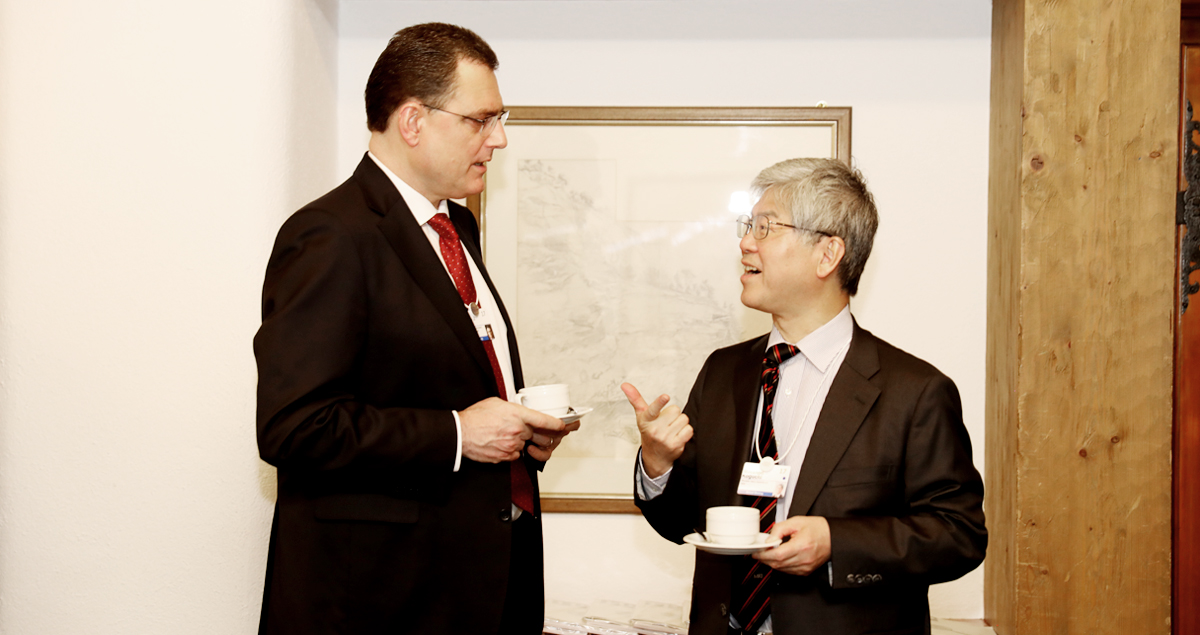Over 65 and powering the global economy

The world’s aging population has worried economists and governments for decades, and for good reason. Rising life expectancy and falling fertility have paved the way for a dramatic shift in the way society is structured.
Globally, the number of older people is expected to exceed the number of children for the first time by 2047. The shift in Asia is especially pronounced - the population of those aged 65 and above is projected to increase by 314% over the next 50 years.
This poses some serious challenges. Older people require higher levels of healthcare spending and there are increased pension costs. Plus, of course, when people stop working and earning, it is inevitable that countries’ income tax revenue will decline.
A changing reality
Many of the expectations of working life patterns which developed after the Second World War are now having to be adjusted.
The retirement age is being raised in many advanced economies; in the future we will all simply have to work for longer. This has often been viewed primarily as a way of reducing the burden on the state’s pension commitments but, actually, the economy desperately needs the skills that older people have too.
Retirement deprives companies of critical experience and knowledge which undermines productivity across the entire economy, according to new research. The academics who carried out the work note: “An older worker’s experience increases not only his own productivity but also the productivity of those who work with him.”
All else being equal, experienced workers are more productive. One study found that productivity did not peak until the age of 50, a time when it is 60% higher than that of the average 20-year-old.
In addition, the average 60-year-old in the 2000s was as healthy as the average 55-year-old in the 1970s, and in many occupations, cognitive skill matters more than physical stamina.
The aging workforce is better educated too. Since college enrolment began climbing steadily in the 1980s, older workers today are increasingly likely to have a degree.
Older workers are an increasingly valuable asset and already, many employers say they aren’t short of skills but experience.
“As your employees who have been working in manufacturing start to retire, you’re not just losing people – all that knowledge and experience is walking out the door,” Jenny Stupica, HR Manager at SSP Fittings Corp, a US manufacturing company told the Wall Street Journal. People with basic skills and aptitude for math and mechanical learning can be trained to do manufacturing work, she said, but what her company really missed was experience.
Employment rates for people in their 50s and 60s have been rising for two decades and have grown more sharply than for other age groups since the financial crisis.
In the UK, the employment rate for people aged 65 and over has climbed to 10.7% from 7% in 2007. The number of self-employed over-65s in the UK has doubled in the past five years to nearly half a million.
Skills in need
Prolonging working life is one of the most pressing challenges for policymakers around the world. Skills shortages are a problem in many advanced economies and simply training up more young people will not be enough.
Companies are recognizing this. For example, Mitsubishi Heavy Industries recently established a new company specifically for workers of retirement age and above (called “MHI Executive Experts”). It provides veteran employees with opportunities to continue using their extensive knowledge and skills after retirement. Its employees support a range of engineering, procurement and construction projects, and also share knowledge with newer recruits to help develop the next generation of specialists.

The aging workforce was a key topic at the recent World Economic Forum meeting in Davos, Switzerland. Speaking at the event, Mitsubishi Heavy Industries’ Global CFO, Masanori Koguchi, commented, “It is clear people want to maintain active lifestyles after retirement, and to put their skills and experience to good use… I think it’s vital to effectively manage these retirement and skills transfer issues”.

In Germany, BMW has specifically adapted part of its production line in Dingolfing in Southern Bavaria to make it more comfortable for older workers. The area has been nicknamed ‘Altstadt‘ or ‘Old Town’ and has stools in place where workers once stood for long hours, its own relaxation room and the production line itself has been slowed down to around one third of the normal pace.
'This is, worldwide, the first plant designed for such workers and is an example of the BMW motto; Today for Tomorrow,' the company says.
Lifelong learning
To ensure as many older people as possible stay within the workforce it is vital to equip them with the skills to take advantage of technological change. Training is not just something for the young; companies, and indeed countries, need to develop lifelong learning to ensure existing workers do not fall into a skills gap.
And retention needs to be made more of a priority. Jobless older people face more difficulties in finding work than prime-aged workers so it is important to hold on to older skilled people whenever possible.
In the past early retirement has been used as a quick and ‘painless’ way of reducing the size of the workforce without much thought to the impact on the overall reserves of skills and experience.

Weathering the storm
Aging societies are not destined to experience stagnation or a decline in living standards. With the right policies and incentives in place, economies can withstand this transition.
It will take decisive action by both government and business including the overhaul of both the private and public pension systems to encourage later retirement, the shift in benefits to favour later retirement and a reduction of tax penalties on earnings for those who are already collecting pensions.
It is certainly not easy, but these changes can pay immeasurable dividends in terms of skills retention, raised productivity and better social and economic cohesion between the different generations as our society evolves.





